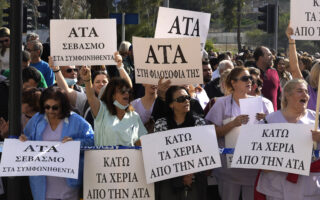Crises increased inequalities

The wound from the 10-year economic crisis on household incomes in Greece is hard to heal, both because of the intensity and duration of the crisis, and because it was followed by two more: the pandemic and inflation.
Very poor households became even poorer and much of the middle-income class was driven to impoverishment, while wealth was concentrated in the hands of even fewer than in the pre-2009 era.
While in 2008 more than a third of Greek households had a monthly income of over 2,200 euros, now only 18.52% belong to this income categories, according to the annual Greek trade report 2022 by the Trade and Services Institute of the Hellenic Confederation of Commerce and Entrepreneurship (INEMY ESEE).
In 2008 the households with an average monthly income of up to €750 were 193,747 out of a total of 4,072,175. By 2018 they had more than doubled, reaching 521,223, and now they are 404,966.
Conversely, the households in the highest category, with a monthly income of €3,501 or above, numbered 907,176 in 2008 and are now 363,722, falling to almost two-fifths of what they were 15 years ago. In 2018 there were only 280,970 households earning at least €3,501/month.





